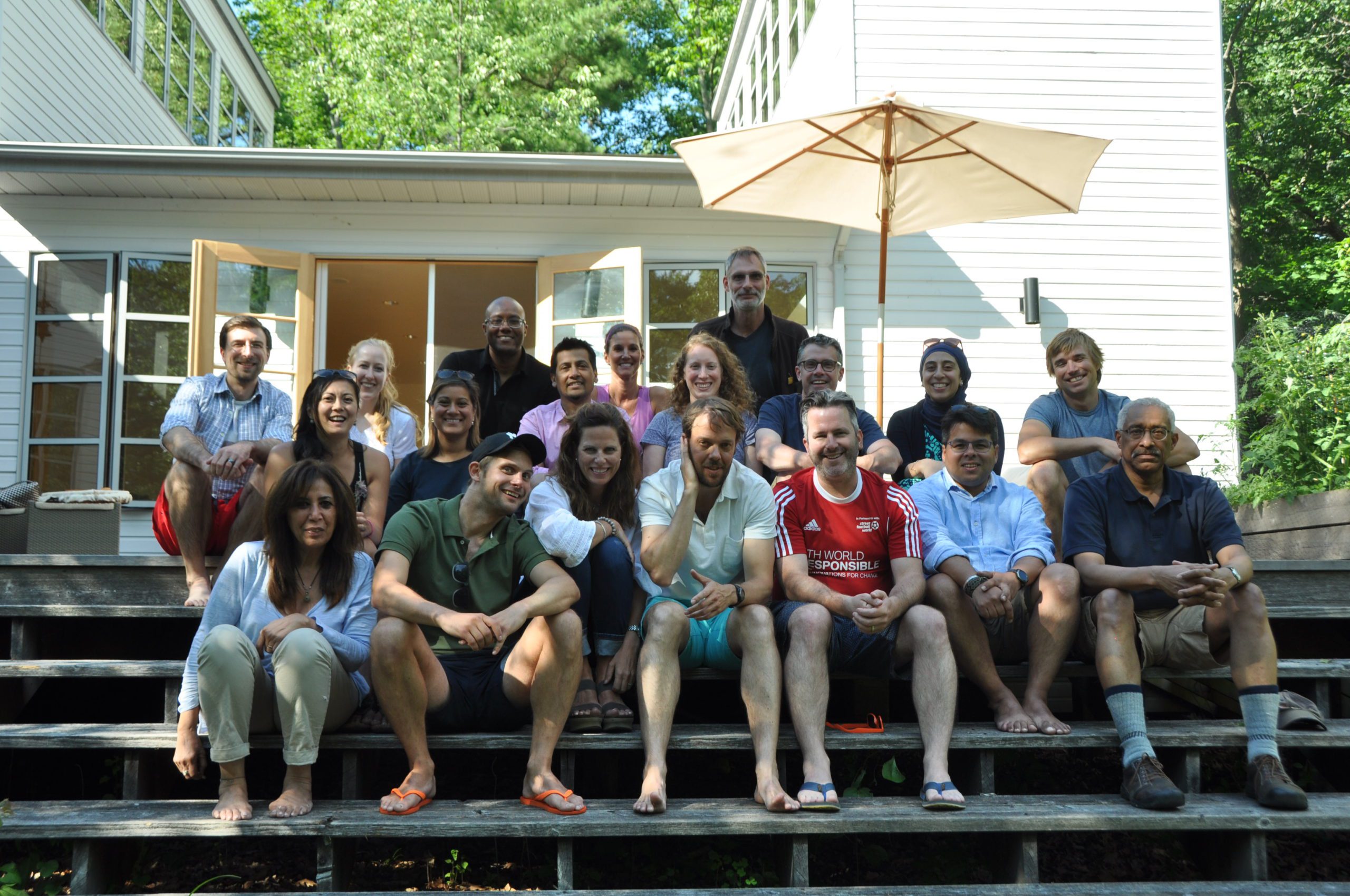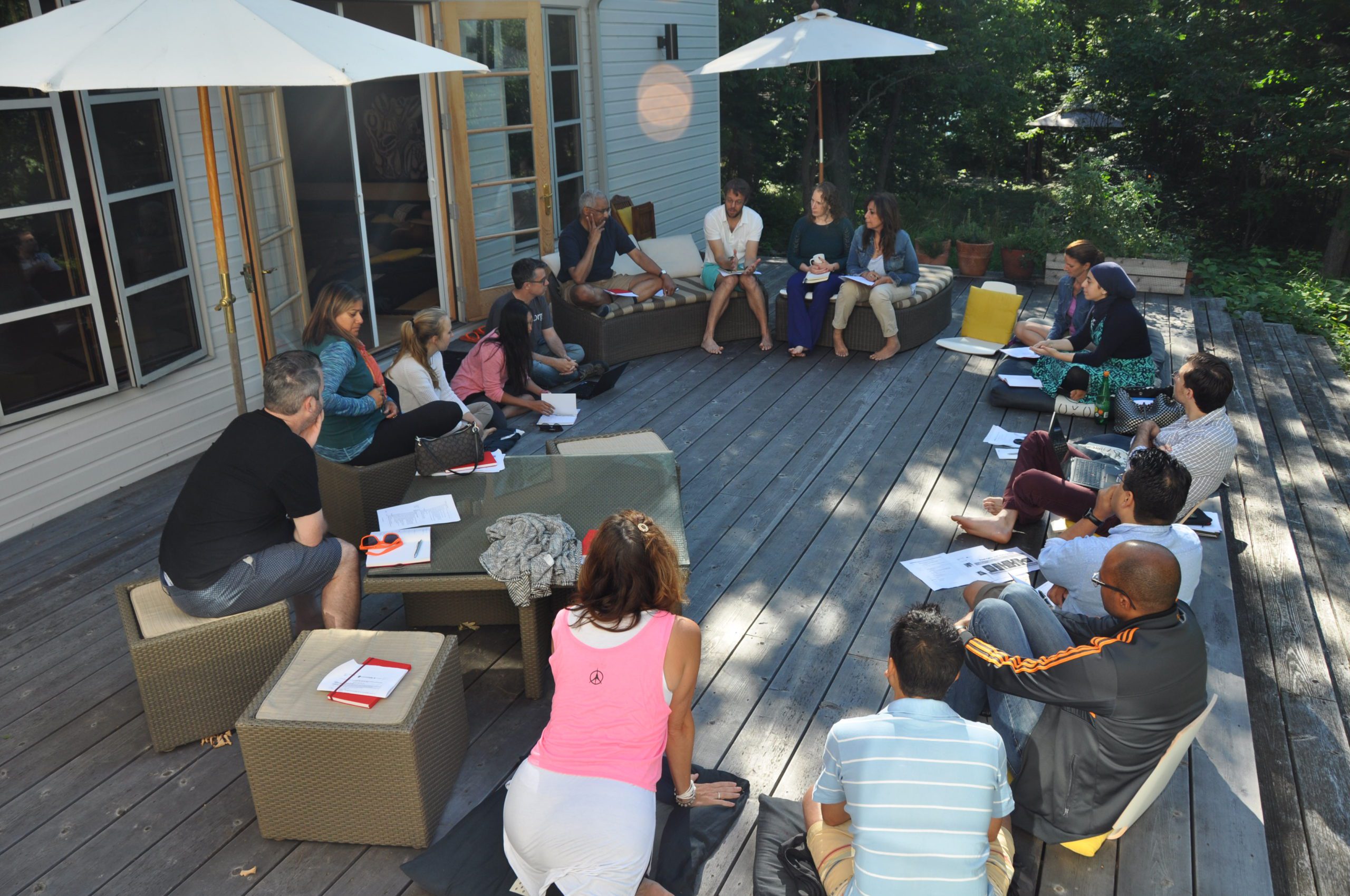NEWS
August 23, 2016

IN BRIEF
Achieving Something Special at a Wilderness Retreat By: Narayan Adhikari, Nepal Country Representative for Accountability Lab Recently, the BMW Foundation convened a group on Wasan Island in Canada- a beautiful retreat in the Muskoka lakes about three hours north of Toronto. It was a perfect, remote location to disconnect and discuss the Accountability Lab. I was honored to be invited along, and packed my bags in Nepal for the trip, which I knew was going to be full of deep thinking, critical reflection and new friends. Arriving on the island, it was more beautiful than I had imagined- lakes as far [...]
SHARE
Achieving Something Special at a Wilderness Retreat
By: Narayan Adhikari, Nepal Country Representative for Accountability Lab
Recently, the BMW Foundation convened a group on Wasan Island in Canada- a beautiful retreat in the Muskoka lakes about three hours north of Toronto. It was a perfect, remote location to disconnect and discuss the Accountability Lab. I was honored to be invited along, and packed my bags in Nepal for the trip, which I knew was going to be full of deep thinking, critical reflection and new friends.
Arriving on the island, it was more beautiful than I had imagined- lakes as far as the eye could see; incredible weather with a breeze between the trees; and traditional boat houses as rooms for guests. Wasan Island is a special place, and the synergy between the nature, fun and thought made it the perfect location to reimagine what is possible.
We organized sessions with the participants- social entrepreneurs, activists, academics, practitioners and diplomats- around critical challenges facing the Lab such as: how we understand the contexts in which we work, how we can scale-up, how we can better measure our impact, how we can more effectively learn, and what our role is in movement building.
Among these incredible conversations, I came away with some important take-aways for our work on accountability in Nepal and new thoughts on next steps:
1. Learning has to be an open and collective process to perpetuate social change and maximize impact. Once real, adaptive learning becomes central to an organizational philosophy, feedback becomes a tool to iterate and improve, while at the same time further promoting a culture of openness. In Nepal, my plan is now to integrate learning into everything we do, starting with an event around “learning about learning” in early September.
2. We have to recognize and communicate excellence: While we learn from failures, every organization should also be able to define its “excellence”- the points at which it adds the greatest value. The team can then work out how to communicate this excellence to different audiences. Donors may want to see numbers; the media might prefer stories; communities will want to know how this will lead to real changes in lives. In Nepal, we’ve been working on the communicating with communities part of this in particular through our post-earthquake accountability work. We’ve found that once stakeholders understand the value you bring, it leads to a virtuous circle of mutual support and progress.
3. Scale doesn’t mean bigger: It can also mean greater focus- going deeper with work within a given community or context. Often there is an emphasis in the social entrepreneurship world on scale as breadth- more countries, more people, more “impact”. For the Accountability Lab in Nepal, I’ve realized we need to dive deeper and really understand where our value lies before we scale physically to new contexts. At Stanford, I learned from Professor Huggy Rao that scaling isn’t just about scaling your organizational footprint, it’s about scaling mindset change- and that is what we are trying to do through slowly building our movement for accountability.
4. Failure is mine, success is yours: Building a strong team is like raising a family- it requires dedication and trust. It also requires sacrifices and efforts to ensure that all team members receive the recognition, respect and support they need. In Nepal, we are building a team that truly values each other and works together. On Wasan Island, I realized that while we have made progress, this work is never done- so now I’m home we’re working to put in place new staff evaluation, training and learning plans. Much as on the island (where the food was incredible), we also share meals together every day- there is nothing better for building ties that bind than rice and lentils!
5. Start simple, but just start: There will never be the perfect time to launch a new program or develop a new initiative, but we can’t let the “perfect be the enemy of the good.” Accountability is a messy, political process- and trying new ideas and finding new ways of thinking and talking about the issues is progress in itself. When we started Integrity Idol, for example, we thought it would be a small, one-off TV show. Many people told us we wouldn’t be able to find honest public officials. Now it is a movement across four countries, engaging millions of citizens in support of government servants with integrity. Our retreat reminded me to continue to “just start”- you never know what will come of it.
Finally, what was incredible for me, coming from Nepal, was the unbelievable support, goodwill and energy that the BMW Foundation was able to mobilize behind the Accountability Lab. In Nepal, it is hard to find that kind of selfless support for good causes- and we have a lot to learn from the German, American and Canadian approach to peer engagement and feedback. Not all of the participants on the island were experts in accountability; but they all brought different, valuable perspectives and unconditional encouragement which will hugely enrich our work going forwards.
 More than anything, I learned through the retreat that your supporters are everywhere- and the BMW Foundation understands clearly that when you take them out of their everyday lives and coax them into the wilderness, something special can happen.
More than anything, I learned through the retreat that your supporters are everywhere- and the BMW Foundation understands clearly that when you take them out of their everyday lives and coax them into the wilderness, something special can happen.
Follow Narayan and the Lab on Twitter at @yinayan and @accountlab.

